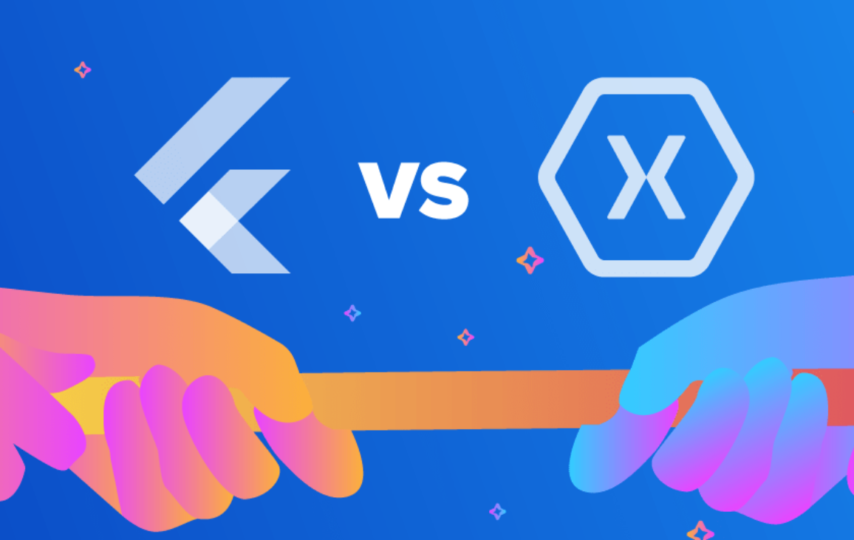Mobile applications have become the foundation of modern connectivity and convenience. These frameworks offer a gateway to streamlined development, native-like experiences and an avenue to bring your innovative ideas to life.
Behind the seamless interfaces that power these apps, and among the top contenders stand Xamarin app development company and Flutter.
Both have different advantages and cater to different needs. Making the decision between the one among them is a critical one. To determine the best, let’s discuss their impact on your project, efficiency, performance and scalability.
Understanding Xamarin
Xamarin is an open-source platform acquired by Microsoft in 2016. It allow developers to build native Android, iOS and Windows apps using a single codebase written in C#. Xamarin facilitates code sharing across platforms using the .NET framework which reduces development time and effort.
Advantages of Xamarin
Code Reusability
It enables sharing a significant portion of code across platforms that streamlines the development process.
Native Performance
With Xamarin, developers can achieve native-like performance due to direct access to native APIs and platform-specific features.
Large Community and Ecosystem
Backed by Microsoft, Xamarin boasts a robust community and extensive documentation offering ample resources and support.
Integration With Visual Studio
Seamlessly integrated with Visual Studio, Xamarin allows developer to leverage powerful development tools.
Unveiling Flutter
Developed by Google, Flutter is an open-source UI toolkit for building natively compiled applications for mobile, web and desktop from a single codebase. Dart, its programming language enables fast development and expressive, flexible UIs.
Advantages of Flutter
Hot Reload
This hallmark feature of Flutter allow developers to instantly see changes in the app without losing state. It enhances productivity and iteration speed.
Consistent UI
Flutter offers a consistent UI experience across platforms, ensuring a cohesive look and feel for the app.
Performance
Its architecture and use of the Skia graphics engine contribute to high-performance apps with smooth animations and transitions.
Widgets
Flutter’s rich set of customizable widgets simplifies UI development and customization.
Applications Where Xamarin and Flutter Excels
Flutter and Xamarin, both powerful frameworks in the world of app development, find their applications in diverse industries and scenarios. Each of them leverages unique strengths to cater to specific needs.
Flutter Applications
Mobile App Development
Flutter’s versatility shines in crafting visually stunning and high-performance mobile applications. From startups to established enterprises, Flutter is the go-to-choice for building cross platform apps. They offer consistency in design and functionality across iOS and Android.
UI/UX Driven Projects
Flutter’s widget-based architecture and hot reload feature make it a preferred choice for projects where user interface and experiences are paramount. Design centric apps like e-commerce platforms, social media and creative tools benefit from Flutter’s ability to deliver consistent, polished look and feel.
Minimum Viable Products
For rapid prototyping and developing MVPs, Flutter’s quick interation cycles allow developers to swifly build and test app functionalities. Thus, making it an ideal choice for startups seeking speedy development cycles.
Xamarin Applications
Enterprise Solutions
Xamarin finds significant traction in the enterprise sphere. Companies looking to build robust, cross-platform applications with shared codebases opt for Xamarin due to its ability to integrate seamlessly with existing .NET frameworks. Thus, making it a prefered choice for businesses with in-house Microsoft expertise.
Business and Productivity Apps
Xamarin’s capability to leverage the .NET ecosystem makes it well-suited for developing businesses-oriented applications. Apps requiring intricate functionalities, data integration and enterprise-level security benefit from Xamarin’s capability with Microsoft technologies.
Gaming and Multimedia
Although not as prevalent as in other areas. Xamarin is also utilized in the gaming and multimedia space. Developers seeking to create cross-platform games or multimedia applications can use Xamarin’s capabilities for sharing codebase and accessing platform-specific APIs.
Xamarin vs Flutter
Development Experience
Xamarin is ideal for developers familiar with C# and .NET and offer seamless integration with Microsoft tools. On the other hand, Flutter suits developers who prefer a more design centric approach, particularly beneficial for creating visually appealing and consistent UIs.
Performance
The Xamarin offers native-like performance due to direct access to platform-specific APIs. Consequently, flutter employs a different rendering approach but delivers impressive performance and smooth animations.
Ecosystem and Community Support
Backed by Microsoft, Xamarin provides robust community support and extensive documentation. And, Flutter is gaining traction rapidly with a growing community and rich documentation.
Time-to-Market
The swift development process of Xamarin due to code sharing is beneficial for faster app development. In contrast, the hot reload feature of Flutter significantly reduces development time and enables quick iterations and updates.
As a result, choosing between Xamarin and Flutter depends on various factors like development expertise, project requirements, and preferences. For developers inclined towards using existing .NET skills, its best to choose Xamarin.
For those prioritizing design and efficiency, Flutter is a compelling option. It emphasizes on fast development, expressive UIs and hot reload functionality making it a frontrunner.
Understanding Limitations in Flutter and Xamarin
Flutter faces challenges with:
Large App Size
Flutter apps can be larger due to its inclusion of necessary libraries, impacting download and storage requirements.
Platform Maturity
Some features or plugins might lack maturity compared to native platforms, causing occasional compatibility issues.
Xamarin encounters limitations such as:
Performance Overhead
Interoperability with native code can lead to overhead performance, impacting app speed.
Learning Curve
Understanding both C# and platform-specific nuances can steepen the learning curve for developers new to Xamarin.
Wrapping Up
In conclusion, Xamarin and Flutter offers robust platforms for mobile app development, each with its unique strengths. Assessing your project’s needs and aligning them with the strengths of these platforms will help in making informed decision. Whether its Xamarin’s native performance or Flutter’s rapid development capabilities, both empowers developers to create exceptional mobile experiences.
By weighing the advantages and understanding the nuances of Xamarin and Flutter, developers and businesses can embark on their app development journey equipped with the insights necessary to make an informed choice that aligns with their specific goals and aspirations.
Choosing the right framework is pivotal as it shapes not only the development process but also the success and user experience of the final product.



